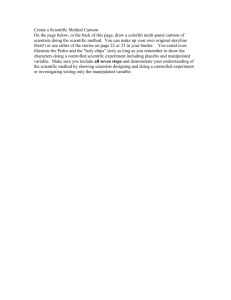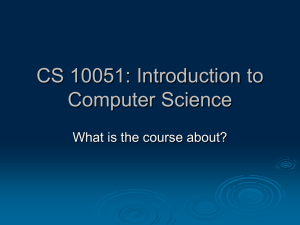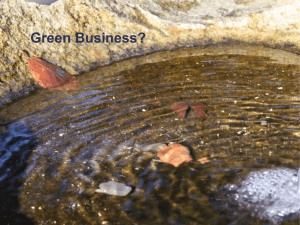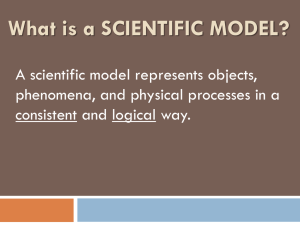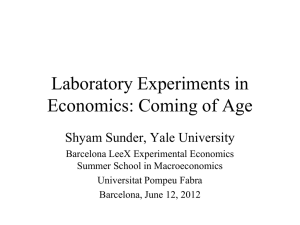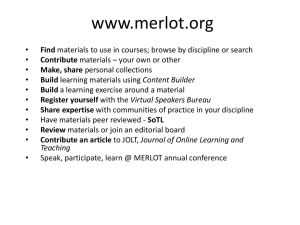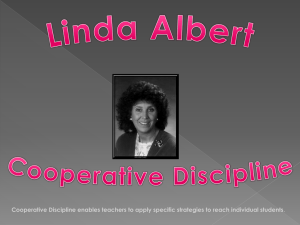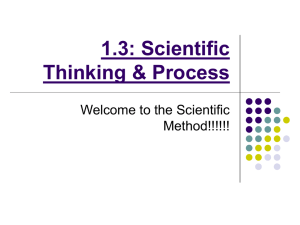Research Skills
advertisement
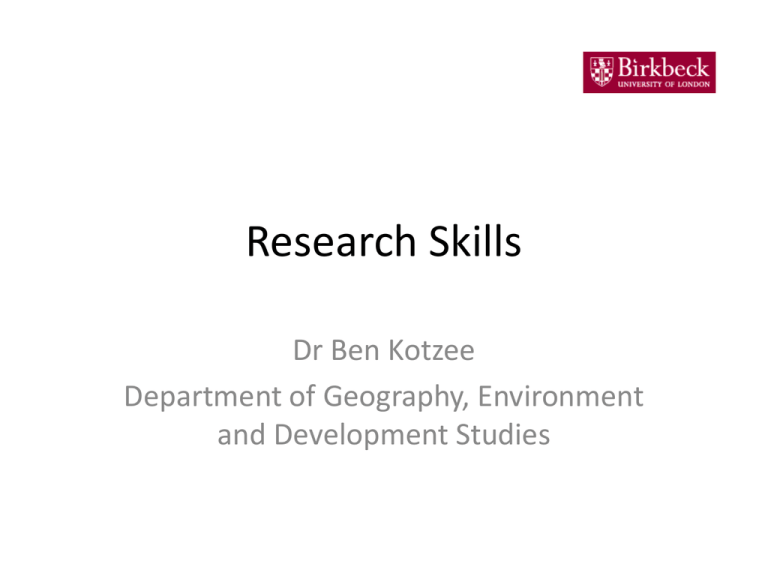
Research Skills Dr Ben Kotzee Department of Geography, Environment and Development Studies What is research? There are many different kinds of research: • Scientific (or, more broadly), ‘academic’ research • Technological research (e.g. the development of technology, medicines) • Commercial research (e.g. market research, product development) • Political research (e.g. polls) Research is just ‘finding stuff out’ A definition (Webster’s) Main Entry: 1re·search Pronunciation: \ri-ˈsərch, ˈrē-ˌ\ Function: noun Etymology: Middle French recerche, from recercher to go about seeking, from Old French recerchier, from re- + cerchier, sercher to search — more at search Date: 1577 1 : careful or diligent search 2 : studious inquiry or examination; especially : investigation or experimentation aimed at the discovery and interpretation of facts, revision of accepted theories or laws in the light of new facts, or practical application of such new or revised theories or laws 3 : the collecting of information about a particular subject Two questions If research is just finding stuff out, why do scientists/academics think they’re doing something special? If research is just finding stuff out, why do we need a subject like ‘research methods’? Scientific method distinguishes scientific research from just ‘finding stuff out’ (but something like this method can be applied in many non-scientific contexts too!) We can use the term ‘research methods’ at three levels: The levels of: • Epistemology or methodology (the study of how we know things) • Research design (e.g. do an experiment or conduct interviews) • Research procedure or technique (what kind of sample to use in a survey; how to construct an interview, etc.) What you will learn during the course of your research methods training • What is counted as ‘knowledge’ in your discipline and how such knowledge is arrived at, proven or demonstrated • What sort of research is typically conducted in your discipline and how are studies designed • What are the procedures or techniques used in your discipline and how to use software and tools commonly used in your field In short, you will learn how to be scientific in your field Some misconceptions regarding science (and social science, for that matter) • A space craft or a computer isn’t science – it’s technology or the application of science • Science is not a specific body of knowledge – it’s a collection of (changing, developing) methods (and ‘methods’ just means standardised, systematic ways of posing and answering questions) • Not just scientists do science – we all do Being scientific This entails being: • Systematic (applying consistent methods) • Empirical (in the sense of ‘drawing conclusions based on the evidence’) • Rigorous (being thorough and precise) • Sceptical (being aware of possibility of disconfirmation) • Ethical …and probably other things too, but it’s a start! Why bother being scientific? • We are assaulted every day by a mass of opinions regarding how the world works • The challenge is to know which ones of these we should believe • In approaching a question scientifically, we attempt to take superstition, prejudice and guess-work out of this problem and provide systematic grounds for why our conclusions should be believed • To count as ‘scientific’, our conclusions need to be (i) compelling and (ii) communicable Attention will be given both to how you make your conclusions as compelling as possible and also to how you communicate them The Natural Sciences and the Social Sciences The approach to research methods training will depend on your field of study • Natural Sciences: e.g. physics, chemistry, biology • Social Sciences: e.g. politics, economics, sociology But what about, for instance, psychology? A cartoon of the natural sciences • The natural sciences discover the world through conducting experiments • Deductive nomological model: universal laws of how physical objects behave can explain physical phenomena e.g. Massive objects attract each other with a force proportional to their masses and inversely proportional to the square of their distance apart The ball and the earth are massive objects Therefore: the ball will be attracted to the earth (it will fall!) if nothing else overcomes the attractive force A cartoon of the natural sciences (2) Science strives to find these universal laws Universal laws are found through application of the hypotheticodeductive method: • Hypotheses are generated • Hypotheses are tested through experimentation I’ve been saying ‘cartoon’ all along, because this is a very simplified way of describing what scientists do…scientists are often criticised for it and often unfairly (because it is a simplification). Research in the social sciences How is social science different from the natural sciences? • Explains the behaviour of people (not things) and of social systems or groups of people • Seeks causal relations between social phenomena and tries to understand the mechanism by which one social phenomenon causes another • But seeks also to understand social phenomena (not just what causes what). The quantitative/qualitative divide What kind of research you do is influenced by your discipline and what you are studying • Quantitative research: proceeds by counting or measuring; most often expressed in numbers • Qualitative research: proceeds by communicating with people (talking to them, reading what they write); most often expressed in words Depending on your field you will learn both Good academic research What is truly good research is hard to say, but here are some ideas: • On topic • Rigorous • Generalisable • Valid • Testable • Reliable • Replicable Good academic research (2) Good academic research • Avoids bias (personal interest) • Avoids prejudice • Avoids muddle-headedness Stages of a research project • Planning • Library research • Writing the literature review • Design of instruments • Data-collection • Data-analysis • Working out findings and discussion • Writing up We will try and help you by explaining each step of the process Questions?
